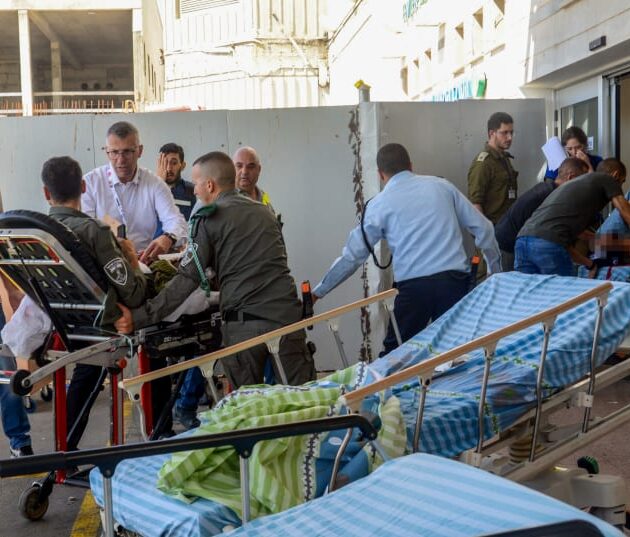
Ben-Gurion University Confronts Terrorism
Ben-Gurion University Confronts Terrorism
December 10, 2008
Negev Development & Community Programs, Social Sciences & Humanities
What went wrong in Mumbai?
In India, government and security forces are doing an excruciating examination of how 10 people were able to get off a hijacked boat, murder 178 people and injure another 300.
They took over huge hotels and brought a city of 19 million to a standstill.
What if there was a place where the world’s leading experts didn’t just examine what went wrong in Mumbai…
What if they found a way to prevent these attacks from ever happening again?
At Ben-Gurion University of the Negev, in Israel, the first University based homeland security institute in the world is asking the tough questions.
“What is it that the current state of technology is not seeing?” asks Doron Krakow, executive vice president of American Associates, Ben-Gurion University of the Negev.
Over the last 12 months on the Ben-Gurion campus, 60 experts have been pooling their expertise on explosives, weapons systems, surveillance, and theoretical reasons behind terror attacks.
And they are doing it with a sense of urgency.
“When we saw what happened in Mumbai or Barcelona or London, we may be building a better safety net but there are too many holes in the safety net,” said Krakow.
We have recently reported extensively on PBSO Sherriff Ric Bradshaw’s high-tech radar-based electronic fence along the country’s shoreline.
PBSO’s point person is at the top secret NOC Center in Washington. The airborne and maritime upgrades put deputies on the same page at the same time in case of a terror attack.
It’s the kind of model the experts at Ben-Gurion would study and dissect. But more urgently they are turning their attention to security failures.
“The attack in Mumbai was carried out by guys with AK-47s and hand grenades. It’s not exactly high-tech terror,” says Doron Krakow.
“If India wanted to take a look at how to try to create a better response scenario, looking at gaps in security, Ben-Gurion would bring together broad elements of the academic community,” he said.



